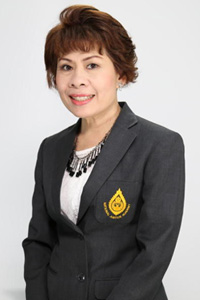Protest leader Suthep Thaugsuban's proposal for a people's council and an interim government will be difficult to make happen.
The people's council will be comprised of representatives from every profession, he revealed in his evening speech on Tuesday. The council will work out reform guidelines for future legal amendments toward national reform. It will issue a clean election law and select "good" and non-partisan people to be interim prime minister and cabinet ministers for royal appointments in accordance with Section 7 of the constitution.
The protesters, he said, share his belief that the resignation of Prime Minister Yingluck Shinawatra and a snap election cannot free the country of the so-called "Thaksin regime."
Since Section 3 of the constitution states the sovereign power belongs the people, he said, the only option for the government is to "return power to the people" and allow the King to use that sovereign power through the parliament, cabinet and judiciary.
Many thought Mr Suthep's proposal is the same as that of former prime minister Abhisit Vejjajiva for a royally appointed prime minister. Mr Abhisit made the proposal seven years ago at the height of the anti-Thaksin Shinawatra protests led by the People's Alliance for Democracy (PAD).
The protests were triggered by the controversial sale of the Shinawatra family's share of Shin Corporation to Temasek Holdings and subsequent tax evasion allegations. Mr Abhisit's proposal, however, was criticised so heavily that no one dared raise the idea again.
According to Mr Suthep, his proposal is different. The people's council will present the name of the interim prime minister for royal endorsement, not for royal appointment. It was the only way an interim government can effect national reform under the people's council's guidance in the shortest period of time possible.
The reform plan includes political decentralisation through governors' elections and community-based police.
"When we disagree with his directions, we're attacked as those who see the world too optimistically," said Nakarin Mektrairat, a political scientist from Thammasat University.
Mr Suthep, he said, must be credited for his courage in leading the anti-government protests, but his reform ideas are "utopian", thus impractical. The need to amend so many laws also leads to risks of distorting the charter's other principles.
For starters, it is extremely difficult for every profession to be represented in the people's council. There are only a small number of organised professional groups such as those for doctors and lawyers.
For the mass media, there are also many media groups which still cannot practice effective self-regulation. For community radio, they have still not been organised.
The fact is that there so many occupations that are not organised into formal groups. Farmers, taxi drivers and fishermen say they have their own organisations, but their membership systems leave much to be desired. What about occupations in the informal sector such as vendors?
Having an interim government and prime minister under Section 7 of the constitution also puts the monarch in a difficult situation, he said. "There should be another option based on political compromise, an option that must also be acceptable to the red-shirt movement."
He admits this compromise would be difficult to reach. "So they need time to talk to each other," he said.
Having parallel bodies from the two rival parties may be one option, he said. Again this option will create confusion in the international community as to who is really in charge of the country.
Most importantly, if Mr Suthep is intent on setting up the people's council, it must include representatives of the Pheu Thai Party, said Mr Nakarin. Otherwise, the new government _ should Pheu Thai win again _ will not recognise the people's council. "Mr Suthep's group won't accept this either."
Other scenarios include a coup to create a new regime, or having people's councils working in parallel with the new government. Both are problematic. And there is a high likelihood that Mr Suthep will say no to everything he disagrees with.
"Politics right now is mainly fighting between two stubborn parties. One is Mr Suthep with his proposals that are extremist.
"The other is the government which refuses to repent, apologise, dissolve the House and resign in order to defuse the conflicts," he said.
However, Mr Suthep's proposals on governors' elections and police reform can be implemented immediately.
All that is required, he said, is amendment to laws in order to solve the problems of officials needing to buy positions from Thaksin's cronies.
"I don't want to say that Mr Suthep's ideas are pipe dreams. But I can't imagine how the people's council can materialise. You can say it will exist only for a short period of time. But how much time is needed to build the new system he envisions?" Indeed, both rival parties are in a deep mess. Mr Suthep's proposals are vague. The government, while facing a credibility and legitimacy crisis, still insists on staying put.
What is most worrying is that the government and Mr Suthep have to negotiate through the military instead of a more non-partisan body as suggested by the university rectors' group. Apart from a House dissolution, the group also suggested that the negotiating team should consist of business and other professional groups. Unfortunately, this call has been met with only lukewarm responses. The military should also make it clear that a coup is not in the picture.
"A roadmap riddled with obstacles will not work," he said. "Political solutions must be inclusive. The red-shirts and moderate Pheu Thai members should have a say to seek common ground."
Nattaya Chetchotiros is Assistant News Editor, Bangkok Post
